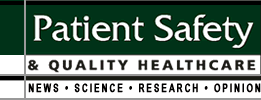 |
 |
 |

July / August 2007

Medication Safety
Reconcile Those Medications!
By Lawrence M. Pawola, PharmD, MBA
Medication reconciliation has been a requirement for acute care hospitals for more than a year. The regulation requires hospitals to implement a professional process to obtain and document a complete list of the patient's active medications upon admission. It should be obtained with the active involvement of the patient, unless the patient is unable to fully participate in the reconciliation process and has requested assistance from another person. The documentation of this important safety goal states that the patient's active medications should be collected across the continuum of care. This means medication reconciliation applies to all patient care settings — emergency, ambulatory, long-term care, and home care — not just acute-care inpatient services.
Now, let's be realistic... When was the last time you were asked which medications you were taking when you purchased ascorbic acid from your local pharmacy? Did someone behind the prescription counter even think for a minute that you might be taking warfarin or on a sodium-restricted diet? In fact, there is a strong possibility that the person ringing up your purchase didn't even know what ascorbic acid is, much less ask the pharmacist on duty if there was anything to find out before you paid for the tablets. What if you purchased the ascorbic acid from your local supermarket? Who would ask the appropriate questions there?
I may sound harsh, but frankly, with patient safety on the mind of almost every health professional (and if it isn't on everyone's mind, it darn well should be!), I can't help but think of medication reconciliation across the continuum of care. It should be an expected best practice for everyone, not just the responsibility of someone in the hospital!
Ambulatory Reconciliation
The Omnibus Budget Reconciliation Act of 1990 (OBRA-90) requires state Medicaid provider pharmacists to review the entire drug profile before filling prescriptions for Medicaid recipients. While OBRA-90 was intended to ensure that Medicaid recipients received best practice pharmaceutical care, the result of the legislation provided the same level of care be administered to all patients, not just to Medicaid recipients. All patients are under the same professional care requirements for counseling and documentation. That includes screening for therapeutic duplication, drug-drug and drug-allergy interactions, drug-disease contraindications, incorrect drug dosage, incorrect treatment duration, and abuse or misuse of medications. Most electronic medical record systems used by pharmacies and physician practices accommodate this quite well, assuming they are up-to-date, and the foundation data are collected and accessible.
For the ambulatory pharmacists reading this, when was the last time you asked a patient what over-the-counter medications he is currently taking, or what vitamins or herbal supplements he takes, or any other prescriptions not filled at your pharmacy (such as through mail order) when you filled his warfarin prescription? Or metronidazole prescription? Or even that last methylprednisolone prescription?
For the physicians reading this, do you always ask your patients what medications they are currently taking when you see them in your office? Or do you delegate this task to your office assistant as he or she is updating blood pressure, temperature, and respirations? Does your office assistant know to ask about vitamins, herbals, and over-the-counter medications? I am thinking of a patient who recently visited our clinic and after repeated questioning finally told me she was taking aspirin. She didn't tell me at first because she didn't think aspirin was really a drug! "Gee, it's only aspirin! And I buy it at the grocery store, so how can it be a drug?"
AARP Makes a Point
I thought I was finished making my point here until I read my latest copy of the AARP Bulletin for May 2007. On page 6, under the heading "You Can Trim Your Prescription Drug Bill," the writer points out that "Health experts say options such as comparison shopping (for prescription medications) and using generic brands can save money" and recommends that readers shop online. That suggestion makes a thorough medication reconciliation process across the continuum of patient care more critical and more difficult because legal drugs can be purchased from multiple sources that are not necessarily coordinated nor ask the appropriate questions. I am an AARP member and don't have anything against shopping around to get the best price, but this suggestion to a wide audience from a reputable source points to a fundamental problem: Many of us don't think twice about shopping around to save a few dollars on items we purchase, including prescription medications. I don't mean to fault AARP; they do a great job serving their members, but this advice makes it even more difficult to reconcile medications.
Across the Continuum
It often is the simple things that make the difference in our lives. As more and more patients are treated at home, outside the "control" of the acute-care hospital, medication reconciliation across the continuum becomes everyone's responsibility. With consumers targeted heavily by advertising for drugs, herbals, and other non-prescription medications, medication reconciliation is not a process to be delegated, nor be taken lightly. This is OUR responsibility as healthcare professionals to assure our patients are safe with the medications they consume, regardless of the source or where they consume them.
Larry Pawola is associate professor and associate dean on the faculty in the College of Applied Health Sciences at the University of Illinois at Chicago. He also is president of his own healthcare information technology and clinical services consulting firm, Lincolnshire Consulting Associates LLC. As a respected industry consultant for more than 25 years, Pawola has worked with a variety of ambulatory clinics, community hospitals, and academic medical centers. His work has focused on assessing clinical systems needs, operational improvements, strategic planning, and education. He has also consulted with healthcare companies for the strategic positioning of their technology products. Pawola is a member of the Editorial Advisory Board for Patient Safety and Quality Healthcare. He may be contacted at lpawola@uic.edu.
|
 |
 |
 |
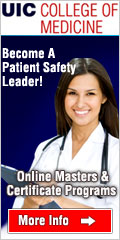

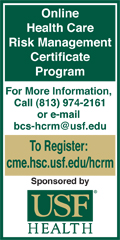

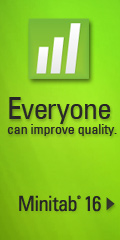

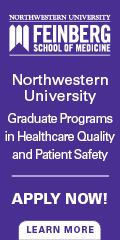

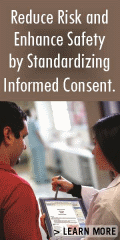

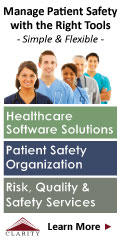

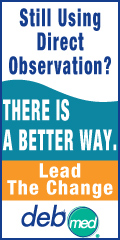





|
 |
